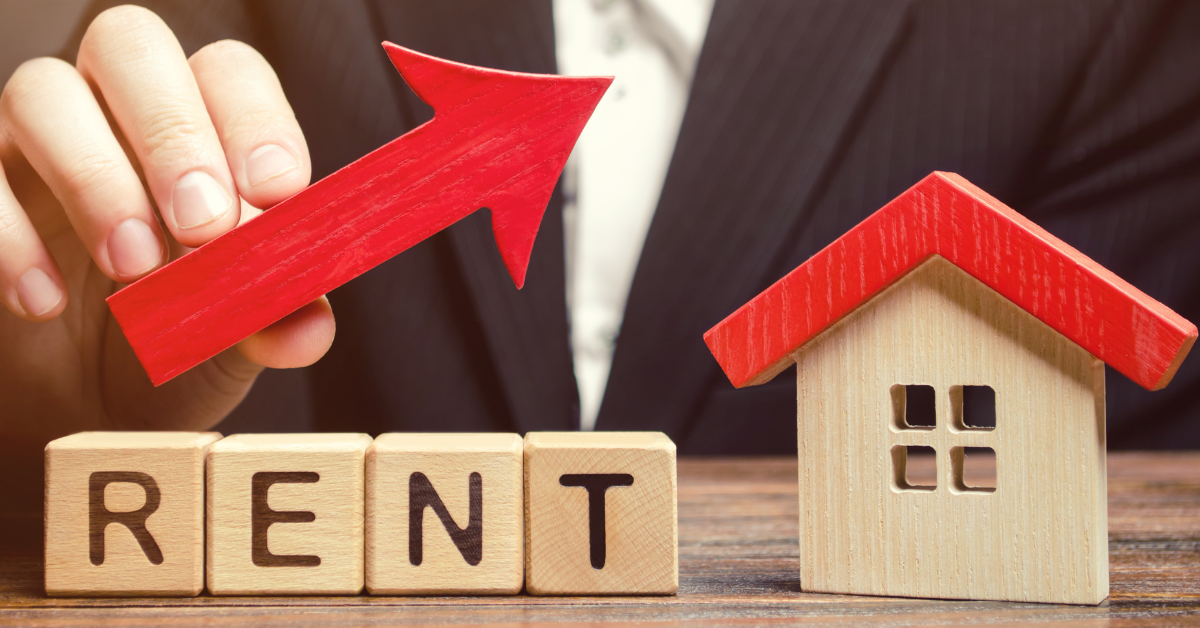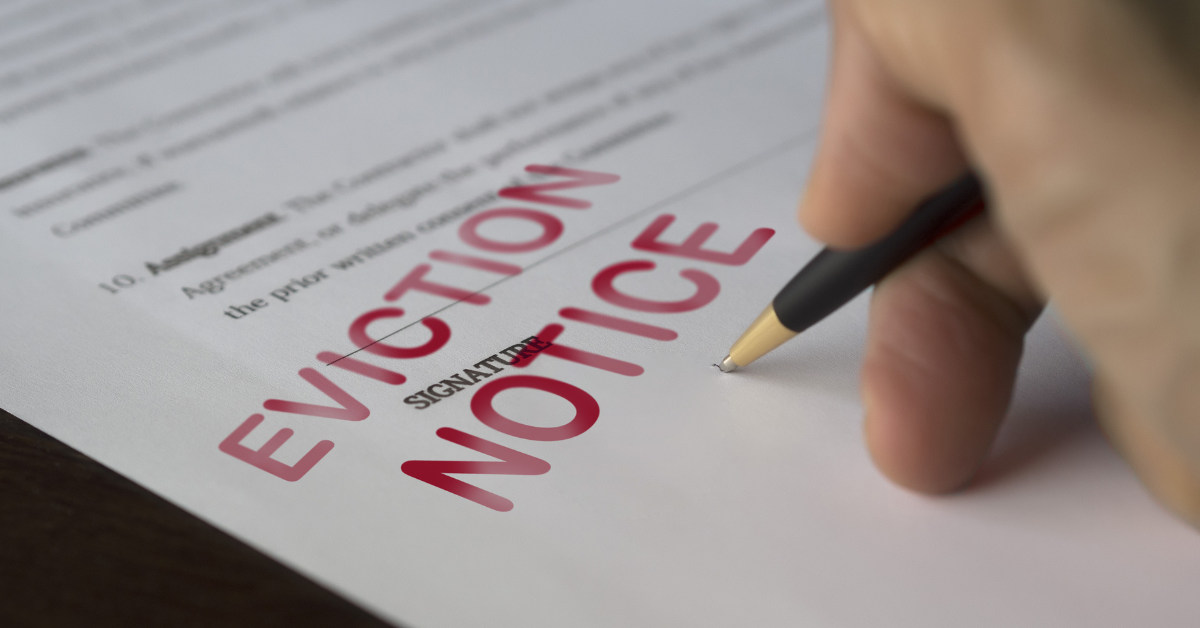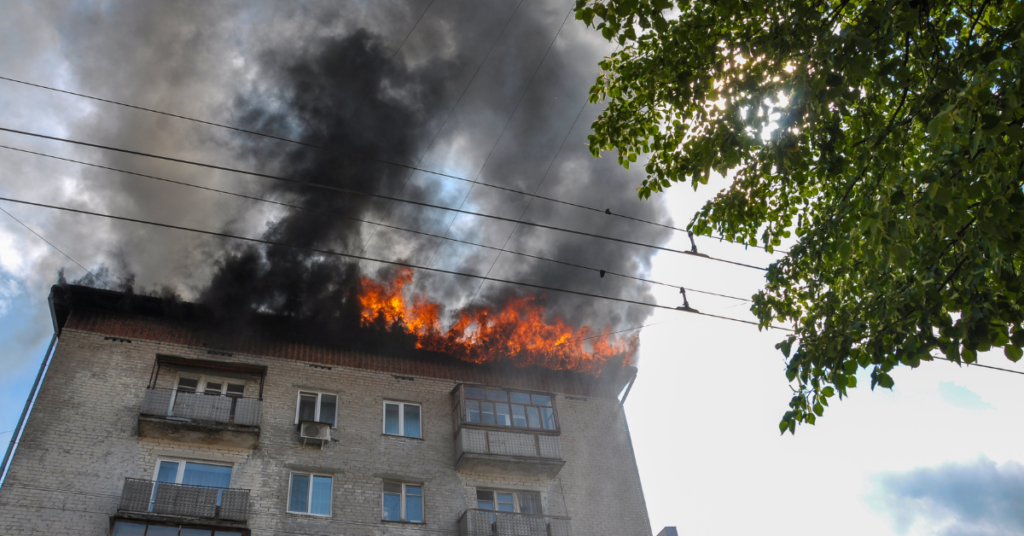Tenant Rights & Landlord Responsibilities: A Complete Guide
Reading Time: 9 minutesThe landlord-tenant relationship is central to the rental housing market. Both landlords and tenants need to understand their respective rights and obligations to foster positive relationships. With rental housing more popular than ever, tenants need to know how to assert their rights to fair treatment, habitable living conditions, and timely repairs. Landlords must understand their…

The landlord-tenant relationship is central to the rental housing market. Both landlords and tenants need to understand their respective rights and obligations to foster positive relationships.
With rental housing more popular than ever, tenants need to know how to assert their rights to fair treatment, habitable living conditions, and timely repairs. Landlords must understand their duties to provide safe, properly maintained properties and respect tenant privacy. Clear lease agreements and open communication are essential.
This guide provides a comprehensive overview of the key rights, responsibilities, and legalities governing rental agreements.
Table of Contents
Tenant Rights and Landlord Responsibilities
Tenants have several important rights that landlords must respect. Likewise, landlords have key responsibilities when renting out property to tenants. Understanding these rights and responsibilities is crucial for a successful rental relationship.
Tenant Rights
1. Right to a Habitable Dwelling
Tenants have a right to live in a dwelling that is legally fit for habitation and complies with local building, housing, and health codes. The property should have hot water, electricity, ventilation, and heat (in cold climates), and be free of rodent/insect infestations or other conditions that could endanger health or safety.
2. Right to Privacy
Landlords must respect a tenant’s privacy and cannot enter the rental unit without proper notice, except in emergencies. Tenants have a right to “quiet enjoyment” within lease terms.
3. Right to Fair Housing
Federal and state fair housing laws prohibit discrimination in renting based on protected classes like race, color, religion, sex, family status, disability, and national origin.
4. Right to Timely Repairs and Maintenance
Tenants have a right to habitable conditions, including having necessary repairs done promptly after notice. Options like rent withholding can apply if major defects aren’t fixed.
Landlord Responsibilities

1. Providing a Habitable Property
Landlords must provide properties fit for habitation per housing codes – with hot water, heating, intact windows/doors, pest control, and operational appliances.
2. Respecting Privacy Guidelines
Landlords must provide proper notice before entry (except in emergencies) and cannot abuse access rights to harass tenants.
3. Non-Discrimination and Fair Housing
Landlords cannot discriminate against tenants based on protected characteristics and must provide equal rental terms.
4. Prompt Repairs and Maintenance
Once notified of issues, landlords must promptly coordinate and provide timeframes for any required repairs to maintain habitable conditions.
Lease Agreements
A written lease agreement is a vital component of the landlord-tenant relationship. Both parties should fully understand and agree to the terms and conditions of the lease before signing.
Importance of a Written Lease
A written lease protects the interests of both landlord and tenant by clearly outlining the agreements made regarding the rental property. This includes the rent amount, duration of the lease, utility responsibilities, property maintenance, and other terms. Without a written lease, misunderstandings can easily occur over verbal agreements. A written lease also provides legal recourse if either party violates the terms.
Key Lease Agreement Terms
Some key components that should be addressed in the lease agreement include:
- Rent amount and due date
- Duration of the lease
- Deposit and fee amounts
- Utility payment responsibilities
- Allowed and prohibited uses of the property
- Maintenance and repair obligations
- House rules and policies
- Penalties for lease violations
Clarifying Duration and Renewal
The lease should clearly state the start and end date of the rental period. Month-to-month leases continue indefinitely until terminated with proper notice. Fixed-term leases end on a set date, requiring renewal if both parties agree to continue. Details on lease renewal terms, notice periods, and rental rate increases should be included. Outlining the renewal process in the original lease avoids confusion later.
Rent Payments and Rent Increases

Tenants have a legal obligation under the lease agreement to pay rent in full and on time. Rent is usually due monthly on a specific date, such as the 1st of every month. Most leases specify a grace period (typically 5 days) after which the rent payment is considered late.
The landlord has the right to increase the rent amount and change other terms by providing proper written notice to the tenant. The notice period for rent increases depends on local tenant laws but is commonly 30 or 60 days. State laws may also limit how much landlords can raise rents each year. Under rent control laws, there may be a cap on the percentage rent can be increased.
If the tenant frequently fails to pay rent on time or does not pay rent at all, the landlord has legal grounds to take actions such as fines, fees, eviction proceedings, or collection efforts to recover the unpaid rent. Tenants who anticipate having difficulty with rent payments should communicate proactively with the landlord to see if alternative arrangements can be made before the situation escalates to an eviction lawsuit. Being evicted can harm a tenant’s rental history and credit score.
Security Deposits
Security deposits are funds paid by the tenant at the start of a lease to provide financial protection to the landlord if the tenant violates lease terms. The deposit amount is usually equivalent to 1-2 months’ rent.
Purpose of Security Deposits
Covers potential damages caused during the tenancy – If the tenant damages the unit beyond normal wear and tear, the landlord can use the deposit to pay for repairs.
Provides financial incentive for tenants to fulfill lease obligations – Knowing the deposit is at risk encourages tenants to avoid lease violations.
Offsets losses if a tenant breaks the lease – Landlords can withhold the deposit to make up for lost rent if the tenant moves out early.
Withholding or Returning Deposits
- The landlord must return the full deposit plus interest when the lease ends, provided the tenant did not cause damage and fulfilled all lease terms.
- The landlord can withhold part or all of the deposit if the tenant caused damage beyond normal wear and tear, left unpaid rent/fees, or broke the lease agreement.
- Tenants should receive an itemized list of deductions and the remaining deposit balance within 30 days of moving out.
Legal Requirements
- Landlords must keep security deposits in a separate escrow account and pay interest annually in most states.
- Local laws specify procedures for inspecting the unit, estimating damages, and returning or withholding deposits.
- Withholding deposits without proper cause or documentation is illegal. Tenants can recover improperly withheld deposits plus punitive damages.
Property Inspections and Entry

Landlords have the right to enter rental units to conduct inspections and repairs, but they must follow proper notification procedures. Tenants have a reasonable right to privacy within their rental unit. Both parties should understand the guidelines around property inspections:
- Landlords must provide proper notice before entering rental units, typically 24 hours or as specified in the lease agreement. Verbal notice is usually acceptable, but written notice via letter or email provides documentation.
- Notice should specify the date, approximate time, purpose, and areas of access needed. Landlords should only enter at reasonable times of day.
- Tenants can consent to entry on shorter notice or without formal notice. However, landlords should still announce intent right before entry.
- Landlords have the right to enter without notice in cases of emergency, such as fire, burst pipes, or other dangers. They can also enter when there is reasonable cause to suspect the tenant has damaged property or breached lease terms.
- During property inspections, landlords should limit access only to areas required. They should avoid fully searching through tenants’ belongings and living spaces.
- Tenants have the right to be present during inspections, either in person or by having a representative on site. Landlords should only enter if tenants are present after proper notice was given.
- Reasonable inspection frequency varies, but 1-2 times per year is common outside of emergencies. Leases often specify guidelines for annual, move-out, and renewal term inspections.
- Both landlords and tenants should aim to communicate clearly and work cooperatively around property inspections. Understanding the required guidelines helps balance a landlord’s need for access and the tenant’s reasonable right to privacy.
Tenant Responsibilities
As a tenant signing a lease agreement, you must uphold certain responsibilities. Being aware of these responsibilities and proactively meeting them will contribute to a smooth landlord-tenant relationship.
Property Maintenance and Cleanliness
Keep the rental unit clean, sanitary, and up to local housing code standards. This includes regular cleaning, proper trash disposal, and avoiding damage beyond normal wear and tear. Inform the landlord promptly about any maintenance issues like leaks, broken appliances, pest problems, etc. so they can be fixed.
Reporting Repairs and Issues
Alert the landlord promptly regarding any necessary repairs or maintenance issues. There may be requirements outlined in the lease agreement for reporting certain problems within a specific timeframe. Acting quickly can help prevent any further damage.
Complying with Lease Agreement Terms
Abide by all the terms and conditions agreed upon in the signed lease document. This includes policies on subletting, noise levels, guests, pets, parking, smoking, etc. Failure to comply could result in warnings or eviction. Communicate with the landlord if certain terms need renegotiation.
Avoid Illegal Activity
Do not engage in any criminal activity or disturb neighboring tenants. The rental property should not be used for any unlawful purpose. Any illegal activity could be grounds for an immediate eviction.
Permit Landlord Access when Required
Allow the landlord reasonable access to the unit after proper advance notice to carry out inspections, repairs, maintenance, and showings to future tenants. Cooperate with the landlord for any essential access needs.
Provide Proper Notice before Moving Out
Inform the landlord in advance if you do not wish to renew or extend the lease agreement. Provide formal notice of your intention to vacate as required in the lease document to avoid penalties or fees.
Legal Rights and Recourse
If either the tenant or landlord fails to uphold their respective rights and responsibilities, there are legal remedies and recourse available.
Tenant Remedies for Landlord Non-Compliance
If a landlord fails to maintain the property in a habitable condition, does not make necessary repairs, violates the tenant’s privacy rights, or does not comply with fair housing laws, the tenant can pursue legal action.
Tenants should consult local tenant rights organizations and attorneys to understand the specific laws and processes for their jurisdiction.
Landlord Rights in Case of Tenant Violations
If a tenant violates the lease agreement, damages the property, or does not pay rent, the landlord can take measures such as:
- Issuing a notice to pay or quit when rent is overdue
- Assessing reasonable fees for property damage per the lease
- Beginning the eviction process for serious or repeated lease violations
- Withholding the security deposit for unpaid rent or damages
Landlords must follow proper procedures and local laws when pursuing these remedies.
Legal Processes for Dispute Resolution
If a dispute arises between a landlord and tenant regarding their rights, responsibilities, or alleged violations, there are alternatives to going directly to court, such as:
Mediation: A neutral third party facilitates discussion and negotiation between the landlord and tenant to reach a mutual agreement.
Arbitration: A neutral arbitrator hears arguments and evidence from both parties and issues a binding decision.
Involvement of housing authorities: Many localities have agencies that can investigate disputes, compel repairs, or rule on fair housing complaints.
Seeking legal representation is advisable before agreeing to any binding resolution process. Additionally, clear documentation is crucial in resolving tenant-landlord disputes.
Lease Renewal/Termination
The lease agreement should specify the rental duration and guidelines for lease renewal or termination.
Lease Renewal
Most standard leases are for 12 months. Landlords typically require tenants to notify them 30-60 days before the lease expires if they wish to renew it. The landlord may choose to renew the lease under the same terms or propose new terms, like a rent increase. Tenants should review the new terms and negotiate if needed before signing a renewal.
If the tenant does not wish to renew, they should provide notice by the deadline stated in the lease, often 30 days. The unit must be fully vacated by the last day of the lease term.
Lease Termination
Unless the lease contains a provision allowing early termination, both parties are expected to honor the full lease term. Tenants typically cannot legally break a lease without penalties unless there is a special circumstance like military deployment or a major medical issue.
Landlords can terminate a periodic tenancy with proper notice, which is often 30 days. They can only terminate a fixed-term lease for cause, like non-payment of rent or lease violations.
Providing Notice
Notice of intent to renew or not renew should be provided in writing before the lease expires. Many states require landlords to provide 30-60 days notice for lease termination. Proper notice periods must be provided in alignment with local laws and the lease terms. This ensures both parties have sufficient time to make new arrangements.
Evictions and Legal Procedures

Grounds for Eviction
An eviction is the legal process by which a landlord can remove a tenant from a rental property. Landlords must have valid legal grounds for evicting a tenant, which typically include:
- Non-payment of rent
- Violation of the lease agreement terms
- Causing significant property damage
- Using the rental for illegal activities
- Disrupting other tenants’ peace and quiet
Legal Process for Eviction
Evictions must follow proper legal procedures for evictions, which vary by state and locality. Generally, a landlord cannot forcibly remove a tenant without first terminating the tenancy with written notice as specified in the lease and local laws. If the tenant does not voluntarily vacate, the landlord must file for an eviction order through the courts and allow the legal process to unfold.
Tenant Protections against Unlawful Eviction
Tenants have protections against unlawful evictions, including retaliation for complaining about unlivable conditions or exercising their legal rights. Self-help evictions, such as changing locks or shutting off utilities, are illegal. Landlords violating eviction laws may face penalties, owed damages, and the tenant regaining possession.
Conclusion
Both tenants and landlords have important rights and responsibilities for maintaining safe, habitable rental properties. Clear communication, knowledge of rights and responsibilities, and a commitment to compliance with local regulations are key to fostering a positive renting experience for all parties involved. Remember, a well-informed and cooperative approach is the foundation for a successful landlord-tenant relationship, ultimately contributing to thriving communities and sustainable housing practices.
Need help navigating tenant rights and landlord responsibilities? Experience the difference with Green Ocean Property Management. Our commitment to clear communication, knowledge, and compliance ensures a positive renting experience.
Partner with us for thriving communities and sustainable housing practices.
Preparing for Asbestos Removal to Prioritize Tenant Safety
Reading Time: 3 minutesWhen it comes to asbestos removal, safety is paramount. At Green Ocean Property Management, we’re committed to going the extra mile to guarantee the well-being of our clients and the public. Asbestos fibers can cause severe damage to our health when inhaled: colon and lung cancer, among other diseases. As a property management company, our…
How Our Rapid Response Property Management Becomes Your Peace of Mind
Reading Time: 3 minutesDisaster can strike even in the most well-maintained properties in the blink of an eye. Just recently, one of our properties faced an unfortunate fire incident. The situation’s intensity was palpable, but our team did not budge. This blog will discuss our rapid response and preparedness during unexpected property challenges and why we are undeniable…
Why Hire a Property Manager: The Key to Maximizing Your Rental Income
Reading Time: 4 minutesMaximizing rental income is a top priority for real estate investors, and one key strategy for achieving this is by hiring a property manager. A study by Buildium found that in 2022, 27% of property managers in the USA are exceeding their client’s expectations with the help of their services. In this blog, we…








